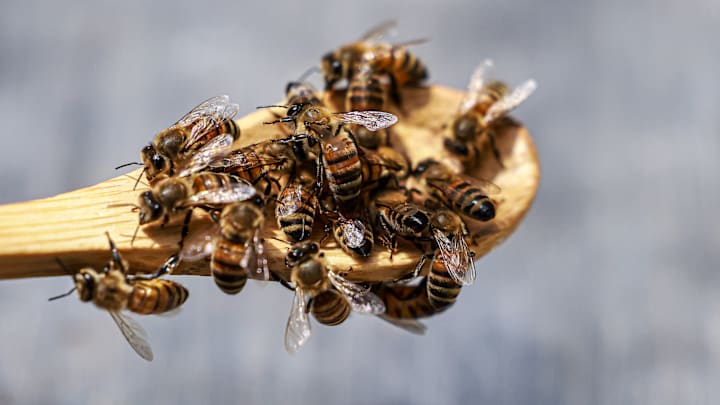Once upon a time, in the age when gods walked among mortals and heroes battled monstrous beasts, there was a magical elixir known only to a chosen few—an elixir that promised strength, poetry, and a taste of the divine. This was not a potion brewed in the dark recesses of a sorcerer’s lair, but a delightful concoction created from the simplicity of honey, water, and the wild yeasts of the air. This was mead, the drink of the gods.
Our tale begins in the lush landscapes of ancient China, around 7000 B.C.E., where the first drops of mead likely sparkled in the vessels of early man, discovered by chance when rainwater mixed with wild honey was left to ferment by the grace of airborne yeasts. The magic of mead spread through the ages, flowing through the annals of history, from the sacred texts of the Vedic priests in India to the grand halls of Norse Vikings, and into the courts of medieval kings.
In the realm of the Norse gods, mead was not merely a drink, but a treasure guarded by giants, a prize won by cunning, a source of wisdom sipped by Odin himself. It was believed that mead could bestow skills in poetry and prophecy upon those fortunate enough to drink it. This divine drink featured prominently in the feasts and celebrations of mortals, a symbol of hospitality and friendship, a binder of pacts, and a warmer of hearts during the cold, unyielding winters.
As our journey through time continues, the art of mead-making blossoms. The wizards of old—now called mead makers—experiment with recipes as old as time itself, adding fruits, spices, and herbs that transform the simple honey drink into complex brews. They conjure melomels, vibrant with the juices of berries; metheglins, mysterious with the whisper of herbs; and braggots, bold with the body of malted grains.
In hallowed halls and hidden glens, these artisans mix and stir, taste and test, their ancient craft refined by the knowledge of centuries. The mead ferments in silence, the yeast working its quiet magic, turning honey into a liquid more precious than gold.
Now, in the age of steel and glass, mead makes a triumphant return, a renaissance fueled by a yearning for the artisanal, the authentic, and the storied. Modern meaderies, echoing the ancient mead halls, open their doors to all who seek the flavors of history. These new-age alchemists offer meads smooth as silk or sparkling like stars, with whispers of oak and echoes of flowers, each glass a sip of history reborn.
Festivals dedicated to mead bloom like flowers in spring, gatherings where old tales are told and new friendships forged over glasses of the golden elixir. Each toast is a homage to those first mythical sips, each flavor a tribute to the bees—the tiny messengers of the gods, who collect the sweet nectar of the earth.
So here we stand, dear reader, at the end of our tale, but perhaps at the beginning of your own adventure. Will you raise a glass of mead and toast to the legends of old? Will you seek out the honeyed depths of this ancient drink and let its liquid lore enchant your senses?
The story of mead is as old as time but as fresh as a new pour. Join the celebration of this timeless beverage, and let the spirit of the past inspire your modern moments. Here’s to mead, the drink of gods and men, a bridge between the ancient and the new, forever cherished, forever revered, forever the 'honey wine.'
And so, with a final clink of glasses under the starlit sky, our tale concludes, but the legend of mead lives on, forever sweet, forever strong.
